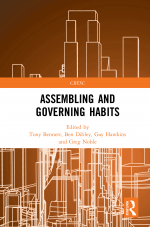Dynamics of power & participation: lessons from Cambodia and Thailand
This chapter draws on two initiatives situated in Thailand and Cambodia, inspired by strength-based capacity building approaches known as ‘asset-based community development’ (ABCD) and ‘Appreciative inquiry’ (Ai). Our approach challenges western-centric conceptions of equality in participatory design and novelty in creative process. In Cambodia, a failed experiment with bamboo furniture led to the re-evaluation of welfare safety nets and sustainable social arrangements.

